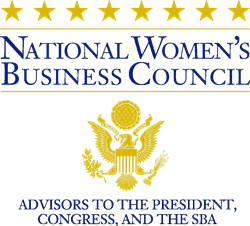
National Women’s Business Council
“Female founders continue to face endemic barriers in accessing capital to start and grow their businesses,” said NWBC Chair Liz Sara. “Data indicate that female founders received only 2.2% or just $2.9 billion of the total $130 billion of 2018 venture capital dollars.”
WASHINGTON (PRWEB)
January 16, 2020
In its new Annual Report, the National Women’s Business Council (NWBC) has issued policy recommendations on angel investment tax credits with the aim to improve access to capital through incentives for new investments in women-owned firms.
The NWBC submitted its 2019 Annual Report to the President, the Senate Committee on Small Business and Entrepreneurship, the House Committee on Small Business, and the Administrator of the Small Business Administration.
This report recaps NWBC’s 31st year and provides the findings, conclusions, and policy recommendations of the Council. NWBC Chair Liz Sara, now in her second year at the helm, has concentrated its efforts on three important initiatives: improving access to capital for female founders, encouraging more women to start and grow companies in STEM-related fields, and removing obstacles for women business owners in rural areas.
The recommendations include a federal angel investment tax credit to broaden the pool of investors as well as a first employee tax credit to businesses hiring their first employee. The Council also supports reforms SBA program requirements that would allow participating firms to accept more venture capital and equity investments.
“Female founders continue to face endemic barriers in accessing capital to start and grow their businesses,” said NWBC Chair Liz Sara. “Data indicate that female founders received only 2.2% or just $2.9 billion of the total $130 billion of 2018 venture capital dollars.”
In addition, 21% of angel-funded companies have a woman CEO. Despite the breakneck pace in which women entrepreneurs are currently starting businesses, women owned-firms still only contribute 4% to overall business revenues—a figure that has not budged in about two decades.
Angel investor tax credits at the state level offer a promising model that may be tailored and duplicated at the federal level. The Council’s recommendations aim at spurring investments in women-owned enterprises, including new market entrants in the STEM fields.
To that end, the Building Blocks of STEM Act was signed into law by President Donald J. Trump on December 24, 2019. Sponsored by Sen. Jacky Rosen (D-NV), the bill instructs the National Science Foundation (NSF) to more equitably allocate funding for research with a focus on early childhood education. The legislation also directs the NSF to support research on factors that discourage or encourage girls to engage in STEM activities, including computer science.
The National Women’s Business Council is encouraged by the passage of this legislation and will continue to identify pipeline barriers for women entrepreneurs in the STEM fields.
“Just four days prior to the passage of this bill, NWBC released its 2019 Annual Report, which provides policy recommendations in three key areas of importance to female founders including women in STEM. The passage of this bill is very encouraging and both NWBC and its staff remain resolute in working to advance policies that provide greater insight and support for female engagement in STEM,” said Nina Roque, Executive Director, National Women’s Business Council.
About the National Women’s Business Council
The National Women’s Business Council (NWBC) is a non-partisan federal advisory committee created to serve as an independent source of advice and policy recommendations to the President, Congress, and the U.S. Small Business Administration on economic issues of importance to women business owners. To learn more, please visit: http://www.NWBC.gov
Share article on social media or email:

